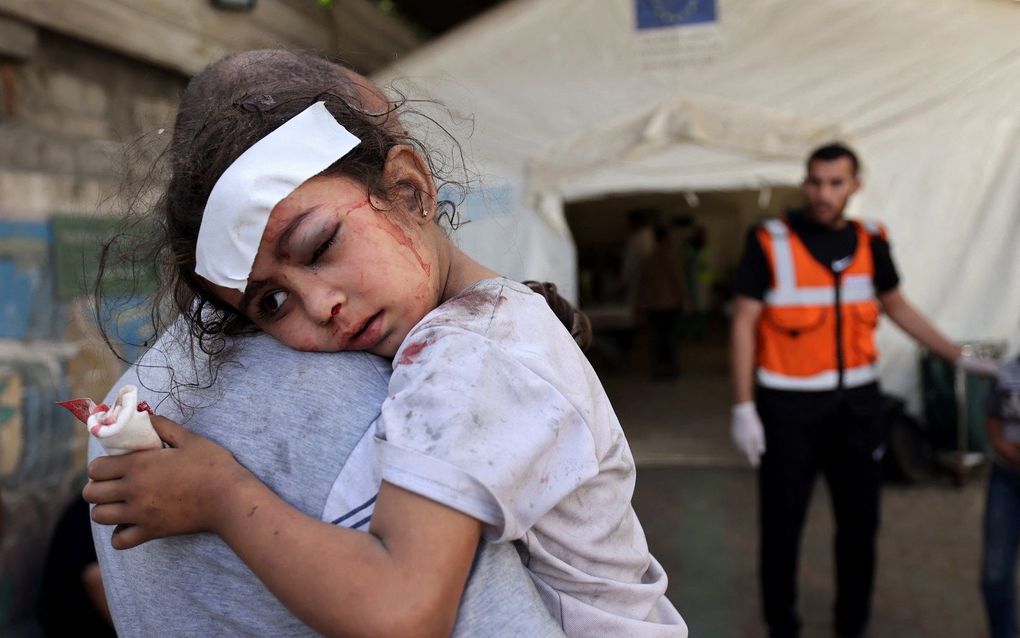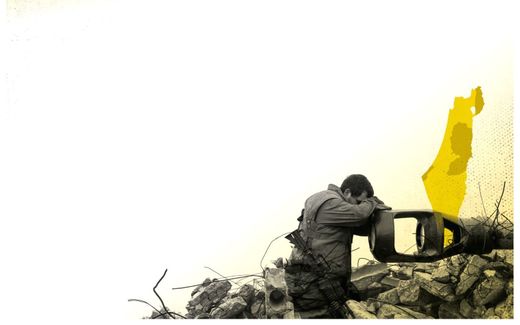Why do we keep looking at terrible images?
18-10-2023
Christian Life
Robert van der Stelt, RD

A Palestinian man carries a wounded girl after an Israeli airstrike on Rafah, in the southern Gaza Strip. Photo AFP, Mohammed Abed
Christian Life
Videos of destroyed houses and mutilated bodies in body bags; War enters our heads and stays on our retinas. This can be especially problematic for children, says media educator Jacqueline Kleijer.
Note: shocking footage. Yet you keep watching. Why? "That is something very old in our system," says Kleijer. In fact, it used to be essential for people to take in negative news. "You needed it to survive. As a result, you knew where the danger was and when to fight or flee."
Today, that survival mechanism is redundant in many cases. "We know very well that that missile will not crash in our backyard," says Kleijer. Yet, we continue to consume violent videos from disaster zones. The happiness hormone dopamine is to blame, explains the media educator. "It's the same substance that causes people to become addicted. You want to keep watching because every time you do, dopamine is released. This feeling fills a void."
Unfiltered
Images full of death and destruction can have a big impact on children in particular, according to Kleijer. As a child, she herself discovered a book about the Holocaust in her parents' attic. In it were pictures of starving people who had just been liberated from concentration camps. She never lost the images. "I still have them very sharply on my retina," she says.
Let alone all the things young people see passing by now, continues the media educator. "Via TikTok, everything comes in unfiltered. There are no editors in between who make a selection and blur things out." In fact, all children, therefore, see images online that they would rather not have seen, Kleijer knows. "I always ask about this during my lessons. Almost the whole class then raises their hands."
Anxiety
Through their parents, negative news can also affect babies and toddlers. "They hear their parents talking about it at the kitchen table and feel the anxiety," she says. This can be particularly frightening for small children, as they do not understand that the conflict is far away. Therefore, do not try to explain the situation, but reassure, Kleijer advises. "A toddler is mostly preoccupied with practical matters. If something bad happens, he is not necessarily sad but wonders who will take him to school the next day."
From the age of six, it is also important to keep children away from violent images as much as possible, says the media educator. This is because it is around that age that children's emotional life and "magical dream world" develop. "By developing their imagination, they mix everything up. This can make them feel very unsafe." Distractions, such as baking biscuits or a game of football, help prevent that.
Globe
Around ten years old, children are already very aware of what is going on around them. Like adults, they need to understand things, says Kleijer. "Explain in plain language why there is war, but don't do it right before going to bed. And take a globe, for example, to show how far away the conflict is."
Around the age of 10, many children are already active online, Kleijer knows. "As parents, talk about what they see on TikTok and YouTube. Ask informative questions, and don't judge." The latter is especially important. "Be happy if your child releases something about it. It trusts you. If you correct in such a case, chances are the child will keep it to itself next time."
Polarisation
But adults should also be careful about watching violent images of war, according to the media educator. She fears polarisation. "I am really worried. People are so caught up in their own bubbles. They feed each other with the most horrific pictures and videos to prove their own point. Not infrequently, this is also accompanied by fake news."
The Dutch terrorism expert Beatrice de Graaf also fears the polarising effect of videos. She recently tweeted, "Don’t watch the atrocities, don’t spread them; it destroys the soul (do read and analyze, but avoid images)."
Kleijer calls for looking at each other with "soft eyes". "Grief and loss are universal. Wherever in the world. So is hate, unfortunately, but love is stronger."
This article was translated by CNE.news and published by the Dutch daily Reformatorisch Dagblad on October 17, 2023
Related Articles









